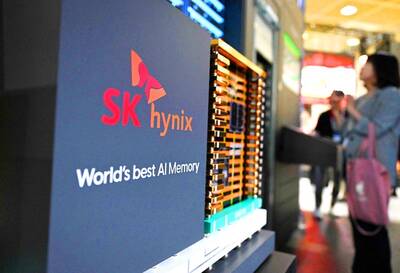Chinese billionaire Jack Ma (馬雲) has dropped his bid to buy US money transfer company MoneyGram International Inc after Washington rejected the US$1.2 billion deal in a fresh example of heightened US scrutiny of Chinese investment.
MoneyGram and Ma’s Ant Financial Services Group (螞蟻金服) failed to gain approval from the Committee on Foreign Investment in the United States (CFIUS), despite efforts to respond to its concerns, MoneyGram chief executive officer Alex Holmes said in a statement on Tuesday.
The panel reviews proposed foreign acquisitions of US companies on national security grounds.
The grounds for possible CFIUS objections were not immediately clear.
MoneyGram shares fell 6.8 percent in after-hours trading on Tuesday to US$12.40 per share.
“The geopolitical environment has changed considerably since we first announced the proposed transaction with Ant Financial nearly a year ago,” Holmes said. “Despite our best efforts to work cooperatively with the US government, it has now become clear that CFIUS will not approve this merger.”
Ma is the founder of Alibaba Group Holding Ltd (阿里巴巴), the world’s biggest online commerce platform by total sales.
The failure is a setback to his ambitions to expand into global markets.
Ma was among the stream of Chinese business leaders who visited US President Donald Trump at Manhattan’s Trump Tower in January last year following his election.
At the time, Alibaba said it could create 1 million jobs in the US by helping small businesses sell their products to Chinese and other Asian consumers.
Trump told reporters in the Trump Tower lobby that Ma was a “great, great entrepreneur.”
Ant Financial, which is linked to Alibaba, in April last year agreed to buy MoneyGram.
Calling off the deal means Ant Financial would pay a US$30 million termination fee to MoneyGram, the statement said.
CFIUS has approved almost all proposed Chinese investments, but a handful of high-profile rejections have made potential Chinese investors skittish.
In September last year, Trump vetoed the proposed US$1.3 billion acquisition of a semiconductor manufacturer, Lattice Semiconductor Corp, by a Chinese government-financed buyer, Canyon Bridge Capital Partners LLC, after CFIUS objected.
A White House statement at that time cited the importance of “semiconductor supply chain integrity” and the potential transfer of technology to a foreign buyer.
Chinese companies are on a global buying spree to acquire technology and brands.
Some purchases of high-tech companies have prompted criticism they might represent security threats or the loss of important US national assets.

Intel Corp chief executive officer Lip-Bu Tan (陳立武) is expected to meet with Taiwanese suppliers next month in conjunction with the opening of the Computex Taipei trade show, supply chain sources said on Monday. The visit, the first for Tan to Taiwan since assuming his new post last month, would be aimed at enhancing Intel’s ties with suppliers in Taiwan as he attempts to help turn around the struggling US chipmaker, the sources said. Tan is to hold a banquet to celebrate Intel’s 40-year presence in Taiwan before Computex opens on May 20 and invite dozens of Taiwanese suppliers to exchange views

Application-specific integrated circuit designer Faraday Technology Corp (智原) yesterday said that although revenue this quarter would decline 30 percent from last quarter, it retained its full-year forecast of revenue growth of 100 percent. The company attributed the quarterly drop to a slowdown in customers’ production of chips using Faraday’s advanced packaging technology. The company is still confident about its revenue growth this year, given its strong “design-win” — or the projects it won to help customers design their chips, Faraday president Steve Wang (王國雍) told an online earnings conference. “The design-win this year is better than we expected. We believe we will win

Power supply and electronic components maker Delta Electronics Inc (台達電) yesterday said it plans to ship its new 1 megawatt charging systems for electric trucks and buses in the first half of next year at the earliest. The new charging piles, which deliver up to 1 megawatt of charging power, are designed for heavy-duty electric vehicles, and support a maximum current of 1,500 amperes and output of 1,250 volts, Delta said in a news release. “If everything goes smoothly, we could begin shipping those new charging systems as early as in the first half of next year,” a company official said. The new

SK Hynix Inc warned of increased volatility in the second half of this year despite resilient demand for artificial intelligence (AI) memory chips from big tech providers, reflecting the uncertainty surrounding US tariffs. The company reported a better-than-projected 158 percent jump in March-quarter operating income, propelled in part by stockpiling ahead of US President Donald Trump’s tariffs. SK Hynix stuck with a forecast for a doubling in demand for the high-bandwidth memory (HBM) essential to Nvidia Corp’s AI accelerators, which in turn drive giant data centers built by the likes of Microsoft Corp and Amazon.com Inc. That SK Hynix is maintaining its